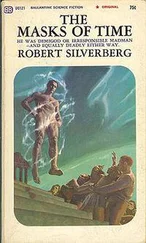Robert Silverberg - A Time of Changes
Здесь есть возможность читать онлайн «Robert Silverberg - A Time of Changes» весь текст электронной книги совершенно бесплатно (целиком полную версию без сокращений). В некоторых случаях можно слушать аудио, скачать через торрент в формате fb2 и присутствует краткое содержание. Год выпуска: 1971, Издательство: Doubleday, Жанр: Социально-психологическая фантастика, на английском языке. Описание произведения, (предисловие) а так же отзывы посетителей доступны на портале библиотеки ЛибКат.
- Название:A Time of Changes
- Автор:
- Издательство:Doubleday
- Жанр:
- Год:1971
- ISBN:нет данных
- Рейтинг книги:4 / 5. Голосов: 1
-
Избранное:Добавить в избранное
- Отзывы:
-
Ваша оценка:
- 80
- 1
- 2
- 3
- 4
- 5
A Time of Changes: краткое содержание, описание и аннотация
Предлагаем к чтению аннотацию, описание, краткое содержание или предисловие (зависит от того, что написал сам автор книги «A Time of Changes»). Если вы не нашли необходимую информацию о книге — напишите в комментариях, мы постараемся отыскать её.
A Time of Changes — читать онлайн бесплатно полную книгу (весь текст) целиком
Ниже представлен текст книги, разбитый по страницам. Система сохранения места последней прочитанной страницы, позволяет с удобством читать онлайн бесплатно книгу «A Time of Changes», без необходимости каждый раз заново искать на чём Вы остановились. Поставьте закладку, и сможете в любой момент перейти на страницу, на которой закончили чтение.
Интервал:
Закладка:
14
Nightfall saw me in Glain. A walled city it is, like Salla’s capital, but otherwise not much like it. Salla City has grace and power; its buildings are made of great blocks of substantial stone, black basalt and rosy granite quarried in the mountains, and its streets are wide and sweeping, affording noble vistas and splendid promenades. Apart from our custom of letting narrow slits stand in place of true windows, Salla City is an open, inviting place, the architecture of which announces to the world the boldness and self- sufficiency of its citizens. But that dismal Glain! Oh!
Glain is fashioned of scruffy yellow brick, here and there trimmed with miserable poor pink sandstone that rubs to particles at a finger’s nudge. It has no streets, only alleyways; the houses jostle one another as if afraid that some interloper may try to slip between them if they relax their guard. An avenue in Glain would not impress a gutter in Salla. And the architects of Glain have created a city fit only for a nation of drainers, since everything is lopsided, awry, uneven, and coarse. My brother, who had once been to Glain on a diplomatic errand, had described the place to me, but I put his harsh words off to mere patriotic prejudice; now I saw that Stirron had been too kind.
Nor were the folk of Glain more lovely than their city. On a world where suspicion and secrecy are godly virtues, one expects to find charm in short supply; yet I found the Glainish virtuous beyond all necessity. Dark clothes, dark frowns, dark souls, closed and shrunken hearts. Their speech itself displays their constipation of spirit. The language of Glin is the same as that of Salla, though the northerners have pronounced accents, clipping their syllables and shifting their vowels. That did not disturb me, but their syntax of self-effacement did. My driver, who was not a city man and therefore seemed almost friendly, left me at a hostelry where he thought I would have kind treatment, and I entered and said, “One would have a room for tonight, and for some days beyond this one, perhaps.” The innkeeper stared balefully at me as if I had said, “I would have a room,” or something equally filthy. Later I discovered that even our usual polite circumlocution seems too vain for a northerner; I should not have said, “One would have a room,” but rather, “Is there a room to be had?” At a restaurant it is wrong to say, “One will dine on thus and thus,” but rather, “These are the dishes that have been chosen.” And so on and so on, twisting everything into a cumbersome passive form to avoid the sin of acknowledging one’s own existence. For my ignorance the innkeeper gave me his meanest room, and charged me twice the usual tariff. By my speech I had branded myself a man of Salla; why should he be courteous? But in signing the contract for my night’s lodgings I had to show him my passport, which made him gasp when he saw that he was host to a visiting prince; he softened more than a little, asking me if I would have wine sent to my room, or maybe a buxom Glainish wench. I took the wine but declined the wench, for I was very young and overly frightened of the diseases that might lurk in foreign loins. That night I sat alone in my room, watching snowflakes drowning in a murky canal below my window, and feeling more isolated from humanity than ever before, ever since.
15
Over a week passed before I found the courage to call upon my mother’s kin. I strolled the city for hours every day, keeping my cloak wrapped close against the winds and marveling at the ugliness of all I beheld, people and structures. I located the embassy of Salla, and lurked outside it, not wishing to go in but merely cherishing the link to my homeland that the squat grim building provided. I bought heaps of cheaply printed books and read far into the night to learn something of my adopted province: there was a history of Glin, and a guidebook to the city of Glain, and an interminable epic poem dealing with the founding of the first settlements north of the Huish, and much else. I dissolved my loneliness in wine — not the wine of Glin, for none is made there, but rather the good sweet golden wine of Manneran, that they import in giant casks. I slept poorly. One night I dreamed that Stirron had died of a fit and a search was being made for me. Several times in my sleep I saw the hornfowl strike my father dead; this is a dream that still haunts me, coming twice or thrice a year. I wrote long letters to Halum and Noim, and tore them up, for they stank of self-pity. I wrote one to Stirron, begging him to forgive me for fleeing, and tore that up too. When all else failed, I asked the innkeeper for a wench. He sent me a skinny girl a year or two older than I, with odd large breasts that dangled like inflated rubber bags. “It is said you are a prince of Salla,” she declared coyly, lying down and parting her thighs. Without replying I covered her and thrust myself into her, and the size of my organ made her squeal with fear and pleasure both, and she wriggled her hips so fiercely that my seed burst from me within half a moment. I was angered at myself for that, and turned my wrath on her, pulling free and shouting, “Who told you to start moving? I wasn’t ready to have you move! I didn’t want you to!” She ran from my room still naked, terrified more, I think, by my obscenities than by my wrath. I had never said “I” in front of a woman before. But she was only a whore, after all. I soaped myself for an hour afterward. In my naiveté I feared that the innkeeper would evict me for speaking so vulgarly to her, but he said nothing. Even in Glin, one need not be polite to whores.
I realized that there had been a strange pleasure in shouting those words at her. I yielded to curious reveries of fantasy, in which I imagined the big-breasted slut naked on my bed, while I stood over her crying, “I! I! I! I! I!” Such daydreams had the power to make my maleness stand tall. I considered going to a drainer to get rid of the dirty notion, but instead, two nights later, I asked the innkeeper for another wench, and with each jab of my body I silently cried, “I! Me! I! Me!”
Thus I spent my patrimony in the capital of puritan Glin, wenching and drinking and loitering. When the stench of my own idleness offended me, I put down my timidity and Went to see my Glainish relatives.
My mother had been a daughter of a prime septarch of Glin; he was dead, as was his son and successor; now his son’s son, Truis, my mother’s nephew, held the throne. I seemed too forward to me to go seeking preferment from my royal cousin directly. Truis of Glin would have to weigh matters of state as well as matters of kinship, and might not want to aid the runaway brother of Salla’s prime septarch, lest it lead him into friction with Stirron. But I had an aunt, Nioll, my mother’s younger sister, who had often been in Salla City in my mother’s lifetime, and who had held me fondly when I was a babe; would she not help me?
She had married power to power. Her husband was the Marquis of Huish, who held great influence at the septarch’s court, and also — for in Glin it is not thought unseemly for the nobility to dabble in commerce — controlled his province’s wealthiest factor-house. These factor-houses are something akin to banks, but of another species; they lend money to brigands and merchants and lords of industry, only at ruinous rates, and always taking a slice of ownership in any enterprise they aid; thus they insinuate their tentacles into a hundred organizations and attain immense leverage in economic matters. In Salla the factor-houses were forbidden a century ago, but in Glin they thrive almost as a second government. I had no love for the system, but I preferred joining it to begging.
Some inquiries at the inn gained me directions to the palace of the marquis. By Glainish standards it was an imposing structure of three interlocking wings beside a mirror- smooth artificial lake, in the aristocrats’ sector of the city. I made no attempt to talk my way inside; I had come prepared with a note, informing the marquise that her nephew Kinnall, the septarch’s son of Salla, was in Glain and wished the favor of an audience; he could be found at such-and-such a hostelry. I returned to my lodgings and waited, and on the third day the innkeeper, popeyed with awe, came to my room to tell me I had a visitor in the livery of the Marquis of Huish. Nioll had sent a car for me; I was taken to her palace, which was far more lavish within than without, and she received me in a great hall cunningly paneled with mirrors set at angles to other mirrors to create an illusion of infinity.
Читать дальшеИнтервал:
Закладка:
Похожие книги на «A Time of Changes»
Представляем Вашему вниманию похожие книги на «A Time of Changes» списком для выбора. Мы отобрали схожую по названию и смыслу литературу в надежде предоставить читателям больше вариантов отыскать новые, интересные, ещё непрочитанные произведения.
Обсуждение, отзывы о книге «A Time of Changes» и просто собственные мнения читателей. Оставьте ваши комментарии, напишите, что Вы думаете о произведении, его смысле или главных героях. Укажите что конкретно понравилось, а что нет, и почему Вы так считаете.












